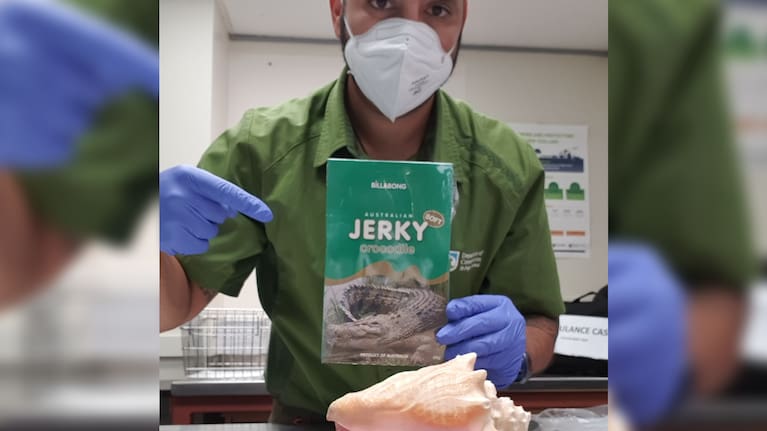Crocodile jerky, whale and bear meat, and luxury handbags and boots made from python and crocodile skin were among the goods the Department of Conservation seized or was surrendered last year under United Nations conventions.
The Convention on International Trade in Endangered Species (CITES) monitors and controls international travel of items containing protected animals and plants.
It ensures that long-term of species is not threatened.
A permit can be applied for to import a CITES protected plant or animal item into New Zealand, but those without will be seized or surrendered.
DOC border operations team lead Mark Ryan said the statistics show the level of surrenders and seizures are beginning to return to pre-Covid levels, with 6337 CITES-listed items seized or surrendered at the border in 2024.
“We are seeing seizures and surrenders begin to increase again, although we’ve not yet reached the pre-Covid levels – in 2019 for example, we had more than 8700 CITES items seized or surrendered.”
Corals, clams and medicines dominated the items coming in, but Ryan said 2024 saw exotic food items and leather goods carried by in-bound passengers or shipped by importers.

A large volume of crocodile jerky – much of it from Australian crocodile farms – was seized or surrendered, as were a few cans of whale, bear, shark and turtle meat.
“Although the packaging of the bear meat suggests it may have been legal to purchase it in the country of origin, the importer still needed the correct CITES permits to bring it into New Zealand,” Ryan said.
Fashion products such as handbags, purses and footwear, made from the skin of protected species like python or crocodiles also featured on the list.
“We appreciate these types of fashion items and accessories are treasured by their owners, but anyone planning on bringing them into New Zealand should check the CITES rules and ensure they have the correct permit.”
Other unusual items seized or surrendered included dried sea horses, hippopotamus teeth, and the skull and tail of a lynx.
